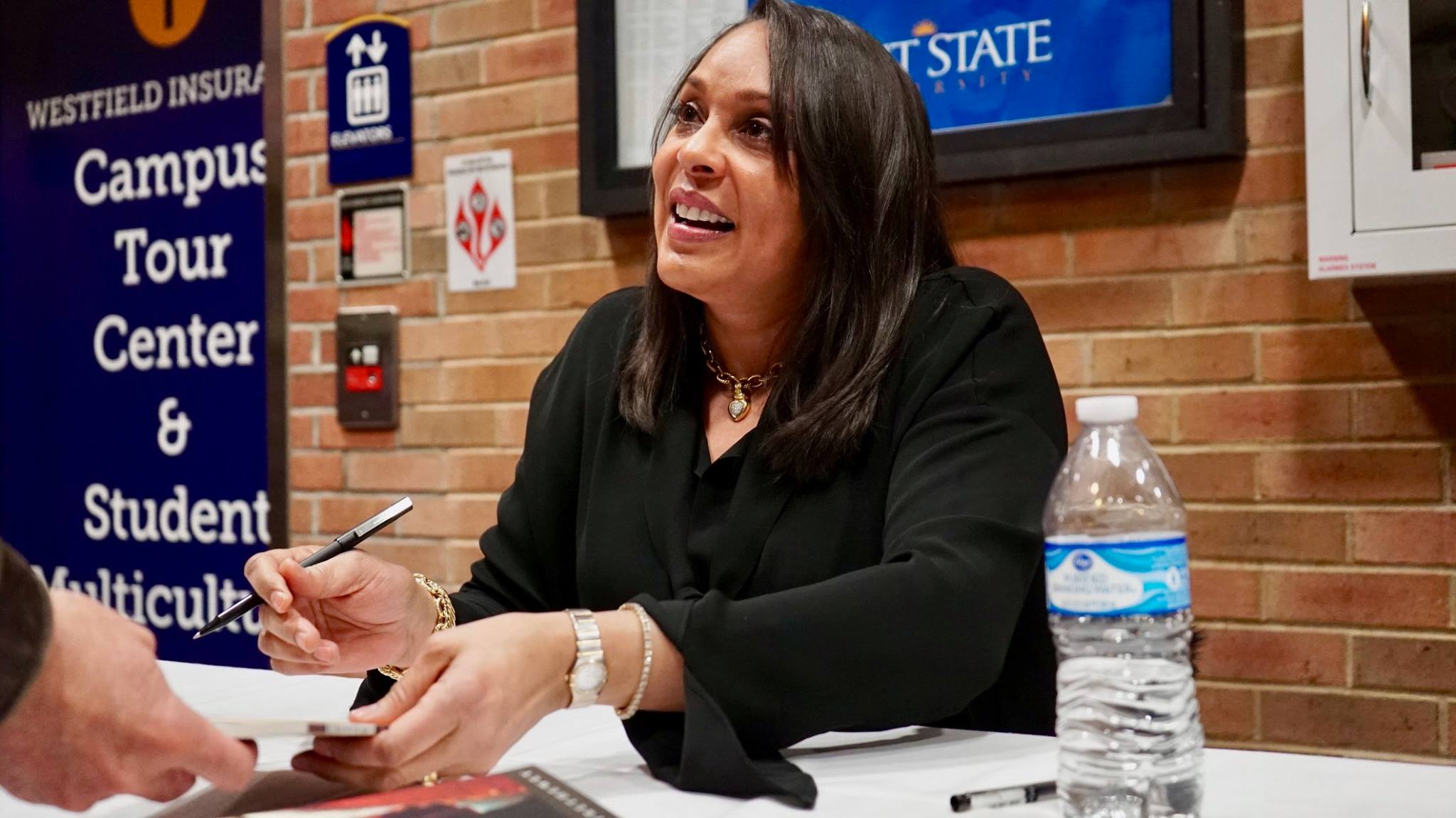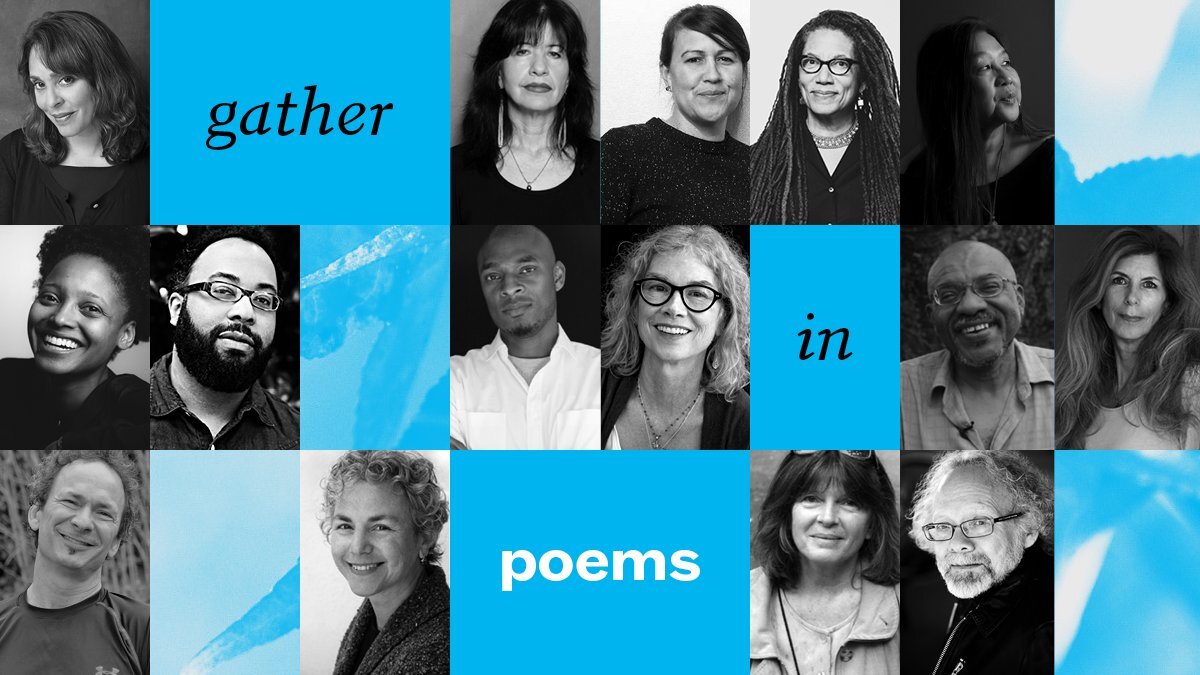Former U.S. poet laureate Natasha Trethewey began her talk at Kent State University by claiming kinship with the audience.
“I always feel slightly at home in Ohio,” she said. “It is the state that allowed my parents to get a marriage license in 1965, allowed me to be born legit in this country, even as our laws still rendered me persona non grata.”
The newborn Trethewey arrived a year later in Gulfport, Mississippi, where her parents’ marriage was illegal under a national patchwork of anti-miscegenation laws. The couple met at Kentucky State College — Gwendolyn Ann Turnbough, a black woman fresh from Gulfport, and Eric Trethewey, a white Canadian who hitchhiked his way to campus.
Their brief marriage – they divorced when Natasha was 6 – features heavily in her work, including the poem she chose to open the evening, “Miscegenation.” As she moved through her reading, an expert mix of personal history and political commentary, Tretheway threaded each poem with the pointed focus of race and place.
Such themes frequently lace through her verse, including in her 2012 poetry collection, “Thrall,” in which she uses historical figures to parse identity and belonging. Prior to that, she released “Native Guard,” which heralded the unsung black soldiers who protected the Union during the Civil War. It won the Pulitzer Prize in 2007.
Parts of the evening were somber, as Trethewey shared the anger and longing lodged in poems she’d written after the murder of her mother, a social worker, when Natasha Trethewey was a 19-year-old student at the University of Georgia. The awful death, at the hands of a second husband her mother had divorced, pushed Trethewey toward poetry more than anything else. In “Myth” she grapples with painful reoccurring dreams of her mother, often triggering a new wave of grief:
I was asleep while you were dying.
It’s as if you slipped through some rift, a hollow
I make between my slumber and my waking,
the Erebus I keep you in, still trying
not to let go. You’ll be dead again tomorrow,
but in dreams you live. So I try taking
you back into morning. Sleep-heavy, turning,
my eyes open, I find you do not follow.
Again and again, this constant forsaking.
Trethewey read a handful of poems that touched on her father, himself a poet and, as his daughter describes him, her first teacher.
“He had been writing about me my whole life. And he was excited and had a little dread about me becoming a poet because he knew I would set the story straight,” she quipped before a sizeable audience gathered by the Wick Poetry Center.
Now 51 and a professor at Northwestern University, Trethewey took a moment to stitch the social justice movements of the past and present. “Incident,” about an attack at her grandmother’s home when she was a child, brimmed with relevance: “It seemed the angels had gathered, white men in their gowns./When they were done, they left quietly. No one came.”
Trethewey looked out at the assembled. “We hear a lot about voter fraud when we really should be talking about voter suppression, voter intimidation, redistricting,” she warned. “But this is not new. We’ve seen this.”


